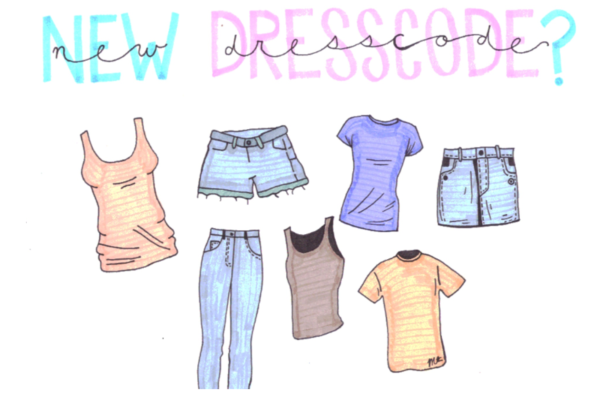Student news censorship: harmful or necessary?
“Student journalists, like professional journalists, provide an essential, constitutionally-protected service to their communities and should be recognized and fully supported for the service they provide in gathering and delivering vital information on issues of concern to the public,” The executive director of the Student Law Press Center (SLPC), Hadar Harris, said.
In September, Adriana Chavira, a Los Angeles Journalism teacher, was going to face a three-day suspension for allowing an article about Covid-19 vaccines to be published in her school’s student newspaper. The article called out staff members by name who had not been vaccinated against the Coronavirus. Despite demands to remove names from the paper, Chavira declined, stating that it was the student’s first amendment right to publish the piece.
Chavira’s suspension was appealed due to a Californian law protecting students and their freedom of the press.
However, not every state has these laws protecting student journalists. According to the SLPC, only 16 states have laws protecting students from censorship in their student newspapers. This leaves 34 states where students do not have the freedom to write stories without supervision and filtering from an advisor.
Students should have the freedom to publish whatever they choose to write about without consequences. It’s important for teenagers to know what is happening around them even if it is through a student newspaper. Removing censorship and allowing complex and controversial topics to be published can help students form opinions and gain a better understanding of the world around them. By publishing these pieces through a student newspaper, these topics are made more accessible to teenagers.
School papers not only share stories and school news but also serve as programs to help aspiring journalists gain experience and an understanding of the field. These publications allow students to improve their writing and grow their journalistic integrity. However, when limits are set on their writing and the topics they can discuss, it stunts this growth.
Journalism is a very experience-based field that relies heavily on already present skills. When the building blocks for these skills are censored and written over, it doesn’t allow students to develop their writing in a way that is needed to have a career as a journalist, reporter, etc.
Censorship of student publications is a more common problem than people may think. According to a survey conducted by the Fire, 63.8 percent of student editors said they have faced censorship from their school. Some of these students were even threatened with a loss of their position on the paper or other disciplinary actions from their school.
However, a Supreme Court case decision from 1988, Hazelwood V. Kuhlmeier, states that a school does not have to allow student speech if it contradicts the school’s religious beliefs or educational mission.
A school is also a different environment than a professional publication office. Schools have to make sure that what’s being published is appropriate for school and will not upset staff, parents, or students. Reputation and safety have to be considered when deciding what is allowed to be published or not because the paper is an extension and therefore a representation of the school it belongs to.
In addition, an editor or their Adviser could also become a target of backlash if they write a particularly controversial article. This could lead to bullying, physical violence, or angry emails from parents. Security in a school is much different from a professional publishing company, and there aren’t as many precautions schools can take to protect writers.
Still, the First Amendment guarantees the freedom of speech and the press. It’s unreasonable and unfair that those rights do not extend to student journalists, who in turn do not have the freedom to write about whatever they want.
Journalists are a crucial part of society, they keep people informed about what happens within society even if it’s controversial or heavy. How can future journalists be expected to be able to do that when they’ve been filtered and controlled throughout their development as writers?
Students and teachers can help fight censorship within school newspapers by speaking out against it and getting people involved. Spreading awareness about the censorship students face can help bring in support from other students and parents who can in turn help speak out.
Teachers like Adriana Chavira, who believed in the rights of her students and in journalism, are incredibly valuable in this fight against censorship as well. Without people like her, students would be alone in their fight to be heard.





